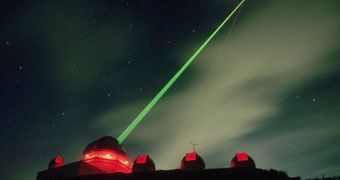Last year saw the heating up of an interesting controversy between proponents and opponents to the idea of sending out radio signals in an attempt to contact alien civilizations. Since then, experts in the international scientific community haven't stopped talking about it.
There are many aspects to consider when deciding whether we should pursue this path of action, experts say, and many of them are ethical, practical or historical in nature. According to critics, the outcome could be ironic.
Considering that we stumble upon a civilization resembling our own in terms of attitude towards things in general, it's safe to say that we'll be exploited of whatever resource the aliens are looking for until the last drop.
This is the way various cultures around the world have gone about doing things, and it would be ironic for our race to end up like the Inca and other ancient people. On the other hand, proponents to contacting aliens say, who's to say that this will actually happen.
Those who support METI (Messaging to Extra-Terrestrial Intelligence) say that the quest represents the willingness of the human civilization to take active steps in securing its place in the galaxy, and maybe even a bit further than that.
Rather than simply waiting for extraterrestrials to make contact, we are taking measures to get the word out that we are here. Aliens listening for signals coming from space would probably appreciate getting a clear message rather than discovering a noise that sticks out of the background.
But other experts say that, by this time, any alien civilization within 100 light-years from Earth knows that we are here. Concealing ourselves is no longer an option, they add.
“An advanced civilization within a radius of 100 light years could detect our television shows and already know we are here, so there is little hope in concealing our location in space,” say astrophysicists Dimitra Atri, Julia DeMarines and Jacob Haqq-Misra.
They wrote a paper about the chances of us making radio contact, and submitted it to the international scientific journal Space Policy, Daily Galaxy reports.
Still, if we do get an answer back on our message, “we should have be wary of answering back, until we have evolved,” famed physicist Stephen Hawking said last year, when the dispute began.

 14 DAY TRIAL //
14 DAY TRIAL //